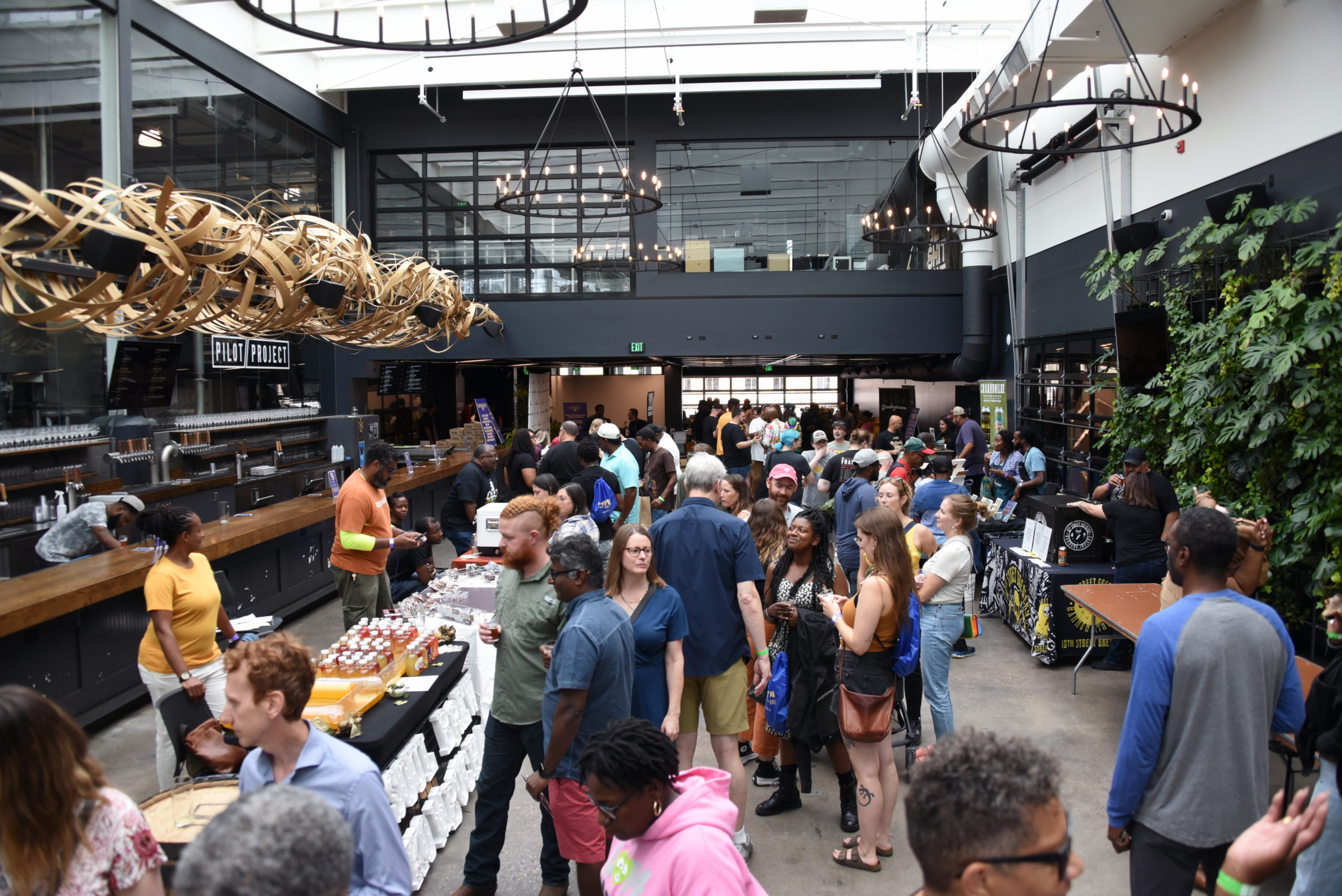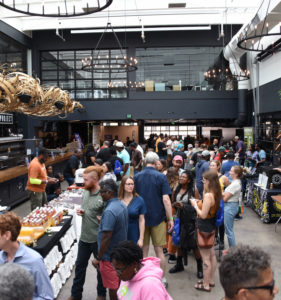“We want to be ourselves and do our own thing.” That phrase was repeated in one form or another by beverage makers who participated in HYFIN’s Brown Black and Brews: The 5th Ingredient, an event showcasing a dozen midwest-based black and brown owned craft beverage businesses. The event, now in its second year, was a fundraiser for HYFIN, a public radio station powered by Radio Milwaukee, and was held at Pilot Project Brewing’s Milwaukee location this August.
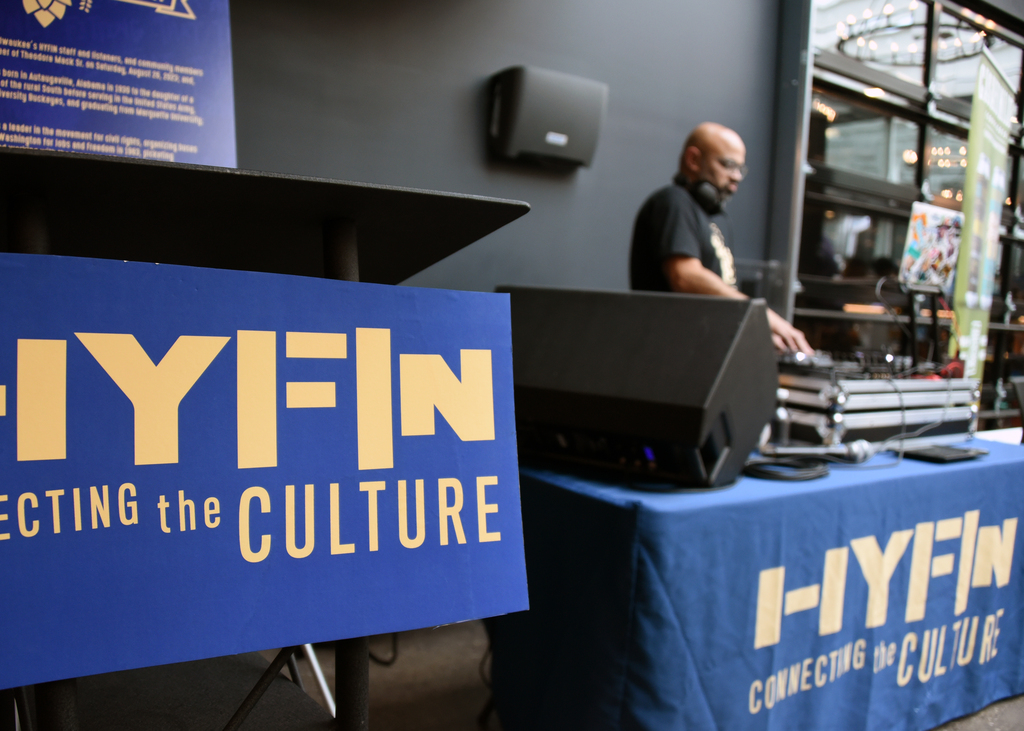
The sounds of hip-hop rebounded off the walls at Pilot Project Brewing as a community gathered to share its love of music and craft brewing. Black, Brown and Brews brings together underrepresented entrepreneurs to pour their brews, sell their wares (like delicious whiskey-infused cookies) and build what event organizers call the 5th ingredient. It’s “a nod to brewers who know it takes 4 ingredients to brew beer. What’s missing? Culture, the 5th ingredient.”
“Did you know about Casa Humilde holding festivals with Spanish music and their saisons in Chicago?” Funkytown Brewery co-founder Rich Bloomfield, based in Chicago and only the second Chicago brewery with Black ownership, was ecstatic to point me toward his fellow beer makers helmed by two Mexican-American brothers. Over and over, each brewery owner and head brewer wanted everyone to try beers from this small community. To build up each other and point you toward them.
“It’s a great opportunity for all of us to showcase our brands,” Bloomfield said. “So there’s Barrel and Flow, which is like the premier black craft beer festival. But we still need these other smaller types of events for us to get together, share ideas, that camaraderie that’s in the craft beer industry, and create that Black beer culture. So events like the HYFIN Black Brown and Brews are absolutely essential to growing this Black beer culture.”
Bloomfield, who co-owns Funkytown with two friends he met in fourth and seventh grades, points out the Black culture evident at the event in something as simple yet significant as can labels.

“You don’t see us on the labels. You don’t see us in the imagery. You don’t see our culture and the tone or the things that are said,” Bloomfield said. “And for Black people specifically, that beer is not even in our community. If you come to the west side of Chicago, you will see malt liquor after malt liquor. So it’s a great moment for us because there’s just an awareness. We didn’t know that this space was for us, that we’re in this space, and that we need to support people in this space. So it’s just the beer culture growing up.”
Moor’s Brewing Company is the other Black-owned brewery in Chicago, and chief executive officer Damon Patton points out his distinct branding.
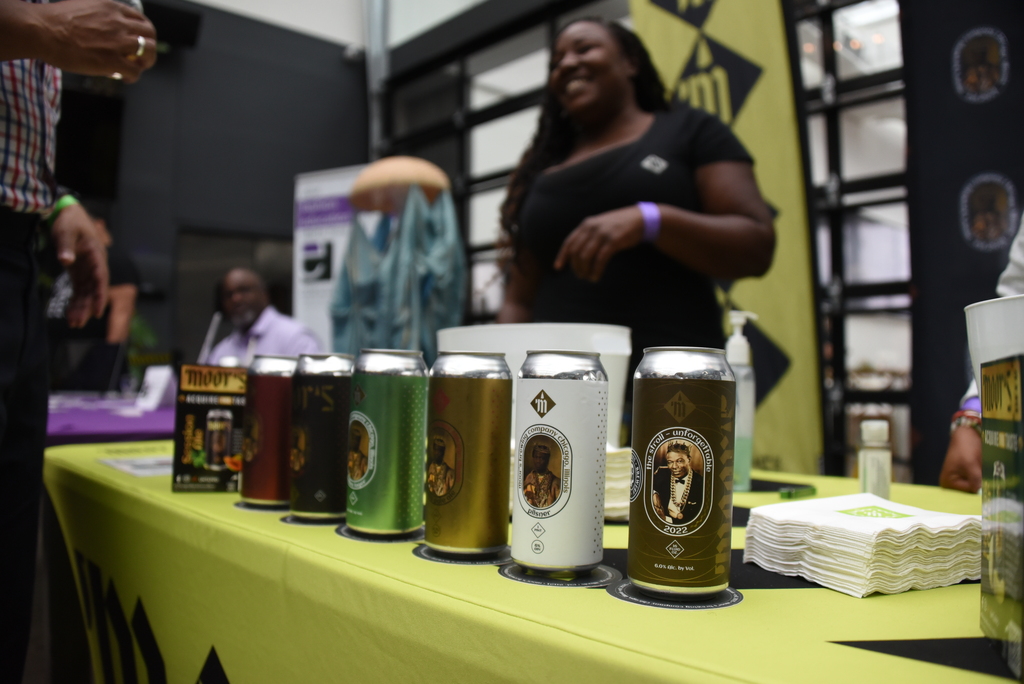
“The iconography on our cans comes from a 16th-century Dutch painter named Hendrik Heerschop,” Patton explained. “African King Casper is the name of the painting; it’s a depiction of the Moorish King who gave Jesus the frankincense and myrrh and the manger story. So we thought that was pretty cool. We added the gold chains and, you know, the crown and the fat gold ring, hip-hopped him up a little bit and made him ours.”
For others, like Alesia Miller, it’s not about beer. And she doesn’t really want her story to be about being the first Black woman in Wisconsin to make kombucha commercially. But she understands the importance of being that first.
And only.
Her Soul Brew Kombuchas started as an experiment and a way to live a healthier life. Miller found out she was pre-diabetic. As a vocalist, she learned her acid reflux was so bad that she might have surgery. And then she found kombucha.
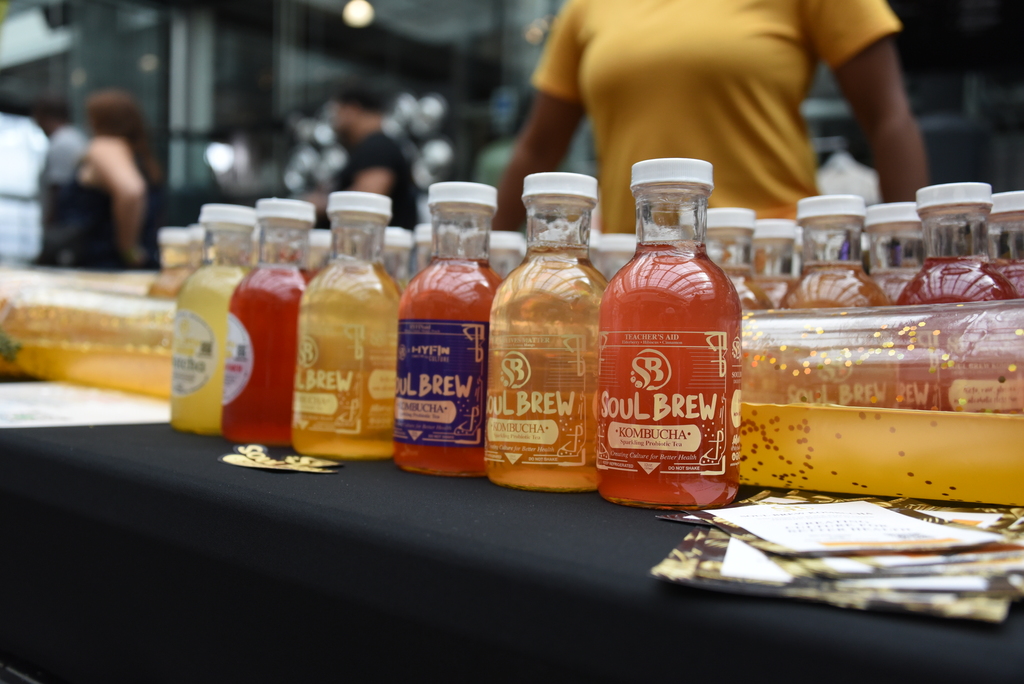
It may not be beer, but she fits in with the event’s brewers, bakers, and other entrepreneurs. Miller sees the coming together as a way to show that this is a space in which underrepresented people can exist. She even participated in the Weathered Souls’ Black is Beautiful initiative, making kombucha with blackberry, lemon, and mango (for the b, l, and m) to make a statement.
“We are at a place where we want to open doors and create seats at tables, and if we can’t be at that table, we’ll just make our own, so I think it’s just a really bold statement,” Miller said. “An event like this really puts the emphasis on that fifth ingredient. And in the Black and Brown space. As a craft brewer, it’s so so different.”
Aligning beers and products with values and identity is important to everyone at the event. Casa Humilde Cerveceria makes beers crafted from the Mexican-American owners’ culture. Stouts taste like horchata, saisons with prickly pear, or a hard seltzer with grapefruit and lime to mimic Mexican rink Cantarito.
Brothers and co-founders Javier and Jose Lopez Jr. are from the Hermosa neighborhood of Chicago, which is predominantly Hispanic.
“Our culture very heavily influences our brand, from our beer to our events where we highlight a lot of Mexican bands in Chicago, a little bit bigger bands from other regions as well. So our culture is key,” Jose said.
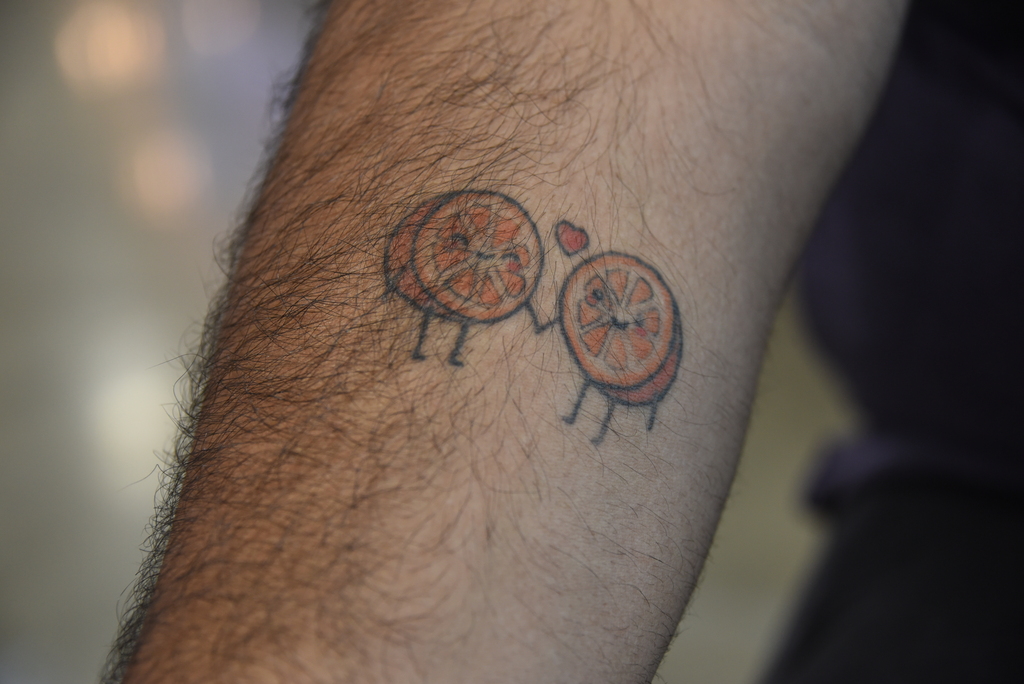
“For us, we’re just being ourselves and want to highlight Mexican products, Mexican culture,” brother Javier interjects. “We started a coffee company a year and a half ago. We’re sourcing coffee strictly from Mexico. So, our offerings are all from Mexico. We’re bringing indigenous corn from Mexico and making tortillas here from scratch.” (The brothers are working on a restaurant concept.)
Even the beer label tattooed on Jose’s arm showcases his culture: two oranges represent him and his wife, mi media naranja, which means my half-orange and is used playfully as my husband, my wife.
“It’s cool because people get excited that we’re Mexican and we’re making beer, and they can see names that are in Spanish, and our events that we do are Mexican forward, so they get excited about that,” Jose said when asked about how Mexican American drinkers view their products, and after we all chatted about our fathers and their love of macro lager. “And they show it to their parents or uncles and stuff like that. Like our dad, he grew up drinking Budweiser and Michelob Ultra, you know, all that stuff. So now he drinks all of our beers.”
Changing mindsets, beers with Spanish labels, Mexican food staples as ingredients and flavors, brands celebrating Black culture authentically, and everyone just being themselves, doing things they want. It feels like a watershed moment, even if there is much more work.
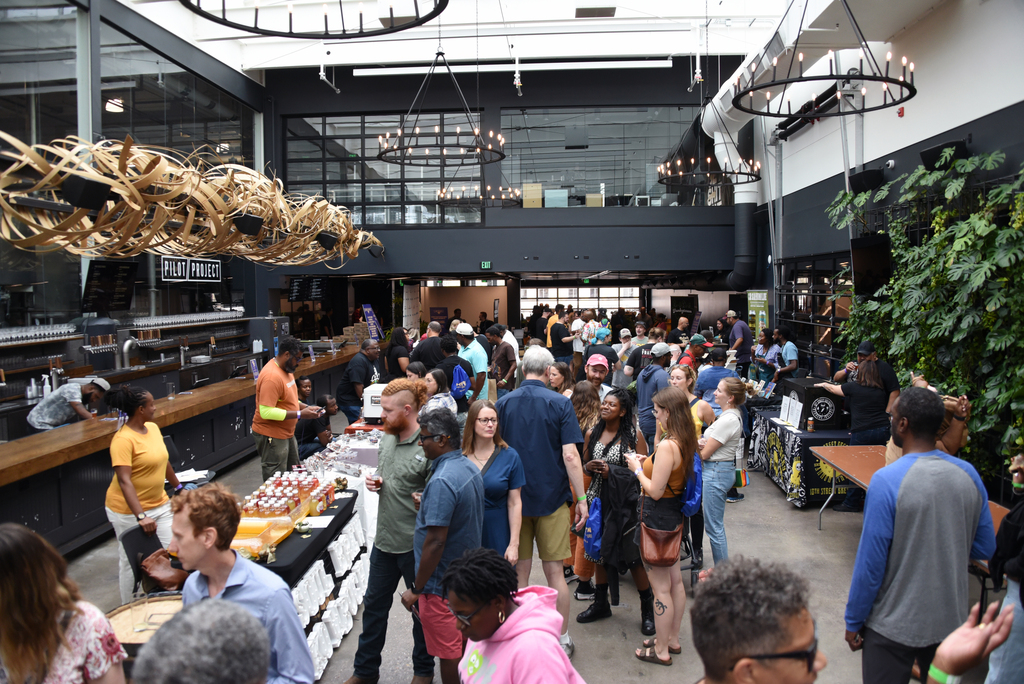
“I think it’s great that we see some other Black and Brown operations kind of, you know, coming to the forefront, and we just want to make sure on a national scale that these companies get their due, get their 15 minutes of fame,” Patton said.
But beyond the recognition, everyone wants to share their culture. Whether within the confines of their communities or on a larger scale.
“We’re just being ourselves,” Javier said. “We’re just trying to share our culture, our music, our food.”

